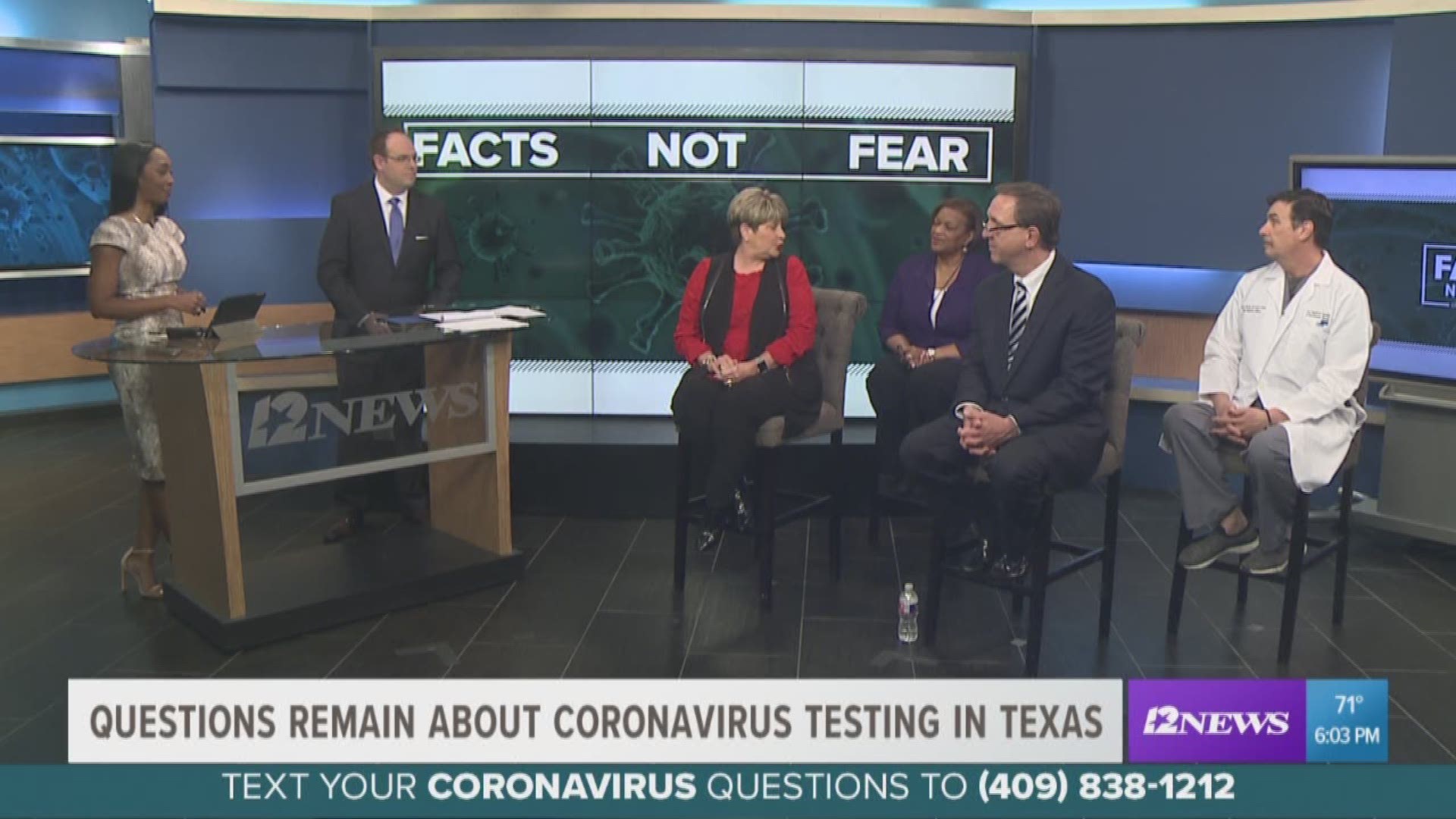BEAUMONT, Texas — If you feel you need a coronavirus test you'll need to make a call before you seek testing.
The City of Beaumont has released an update on coronavirus testing saying conflicting information has been shared according to a news release.
Residents should first call their primary care physician or the medical facility of their choice the release said. Residents should then inform the provider of their symptoms and find out what protocol the facility is using for test seekers to enter the facility.
Test seekers are discouraged from sitting in waiting rooms and potentially exposing others to any illness the release said.
Before being tested for COVID-19 patients will first be tested for flu, strep and other illnesses to alleviate "random panic testing and overuse of resources."
Currently it is still allergy season people are still testing positive for various flu strains the release said.
If you have been exposed to someone who has tested positive for COVID-19 but you're not showing symptoms you should self-quarantine for 14 days. Check for fever twice daily during the self-quarantine.
---------------------------------------
Coronavirus symptoms
The symptoms of coronavirus can be similar to the flu or a bad cold. Symptoms include a fever, cough and shortness of breath, according to the Centers for Disease Control.
Most healthy people will have mild symptoms. A study of more than 72,000 patients by the Centers for Disease Control in China showed 80 percent of the cases there were mild.
But infections can cause pneumonia, severe acute respiratory syndrome, kidney failure and even death, according to the World Health Organization. Older people with underlying health conditions are most at risk.
The CDC believes symptoms may appear anywhere from two to 14 days after being exposed.
RELATED: VERIFY: No, members of Congress who are self-quarantined for coronavirus cannot vote remotely
Human coronaviruses are usually spread through...
- The air by coughing or sneezing
- Close personal contact, such as touching or shaking hands
- Touching an object or surface with the virus on it, then touching your mouth, nose or eyes before washing your hands.
Help stop the spread of coronavirus
- Stay home when you are sick.
- Eat and sleep separately from your family members
- Use different utensils and dishes
- Cover your cough or sneeze with your arm, not your hand.
- If you use a tissue, throw it in the trash
Lower your risk
- Wash your hands often with soap and water for at least 20 seconds. If soap and water are not available, use an alcohol-based hand sanitizer.
- Avoid touching your eyes, nose, and mouth with unwashed hands.
- Avoid close contact with people who are sick.
- Clean and disinfect frequently touched objects and surfaces.
- If you are 60 or over and have an underlying health condition such as cardiovascular disease, diabetes or respiratory illnesses like asthma or COPD, the World Health Organization advises you to try to avoid crowds or places where you might interact with people who are sick.

